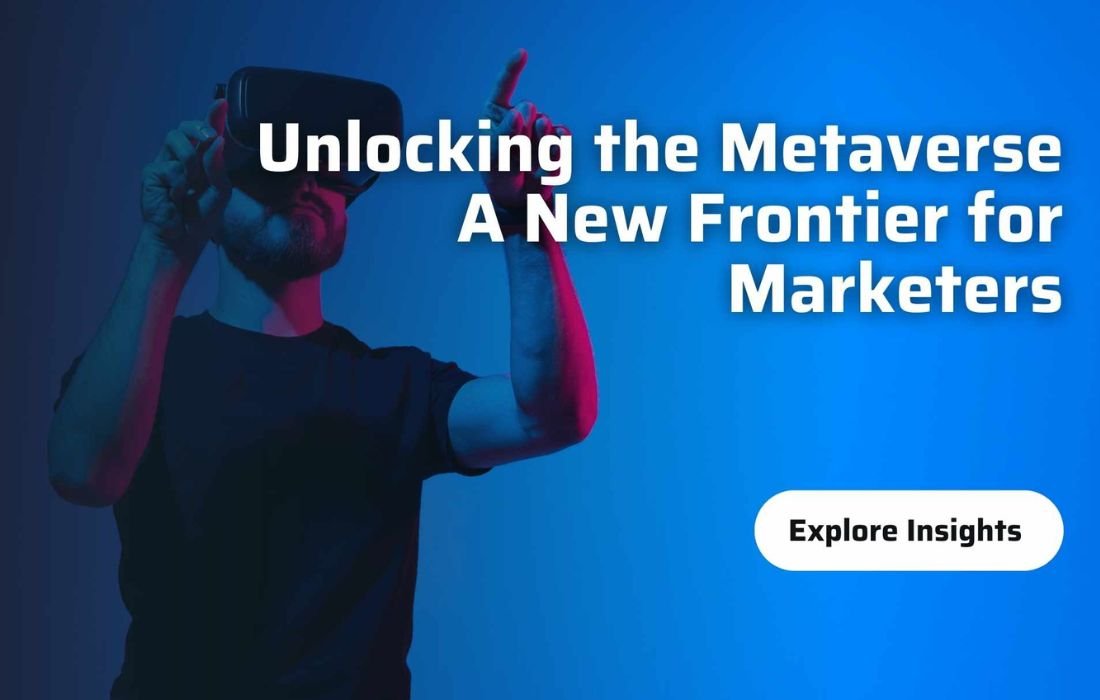The metaverse is no longer a concept confined to the realms of science fiction; it’s fast becoming a reality. In this article, we will delve into the metaverse revolution and explore how marketers can strategically position themselves in this emerging digital landscape.
Understanding the Metaverse
The metaverse is a collective virtual shared space, created by the convergence of virtually enhanced physical and digital realities. It’s an expansive digital universe where individuals can interact, work, play, and create using avatars or digital representations of themselves. The metaverse encompasses virtual reality (VR), augmented reality (AR), and other immersive technologies.
The Metaverse’s Implications for Marketing
New Engagement Avenues: The metaverse offers marketers a novel platform to engage with consumers. Brands can host virtual events, create immersive shopping experiences, and offer unique interactions that transcend traditional marketing channels.
Personalization: In the metaverse, personalization takes on a whole new dimension. Marketers can use data from user interactions within the virtual world to tailor product recommendations and advertising, creating a highly personalized experience.
Virtual Commerce: E-commerce in the metaverse is set to redefine online shopping. Virtual storefronts and showrooms provide customers with immersive experiences, allowing them to interact with products in ways previously impossible.
Content Creation and Branding: Brands can become content creators in the metaverse, crafting virtual experiences, stories, and environments that resonate with their audience. This blurs the lines between advertising and entertainment.
Strategies for Marketers
Build a Presence: Establishing a presence in the metaverse is crucial. Consider creating a branded virtual space where customers can interact with your products or services.
Leverage Virtual Events: Host virtual events, conferences, or product launches in the metaverse. This allows for global participation and fosters a sense of community.
Invest in Virtual Reality Content: Develop VR content that showcases your products or services in an immersive way. This can be a game-changer for industries like real estate, tourism, and fashion.
Data and Analytics: Embrace data-driven marketing within the metaverse. Use user data to refine your marketing strategies and provide personalized experiences.
Collaborate with Influencers: Just as in the physical world, influencers hold sway in the metaverse. Partner with metaverse influencers who align with your brand to reach a wider audience.
Stay Ethical and Transparent: With new technologies come ethical challenges. Be transparent about data collection and usage, and respect user privacy to build trust.
Challenges and Considerations
Technical Barriers: Not everyone has access to high-end VR devices or stable internet connections. Consider how to reach a broad audience without excluding those with limited tech resources.
Security and Privacy: Protecting user data and ensuring security within the metaverse is paramount. Implement robust security measures and adhere to data protection regulations.
Content Moderation: As with any online platform, content moderation is essential to maintain a safe and inclusive virtual environment.
Changing User Behaviour: Marketers should be prepared for evolving user behaviours and preferences within the metaverse.
The metaverse represents a new frontier for marketers, offering unparalleled opportunities for engagement and innovation. As this digital realm continues to evolve, forward-thinking marketers can position themselves for success by understanding its potential, developing creative strategies, and embracing the exciting possibilities it offers. The metaverse revolution is underway, and those who adapt early will undoubtedly reap the rewards in this dynamic and immersive digital landscape.



